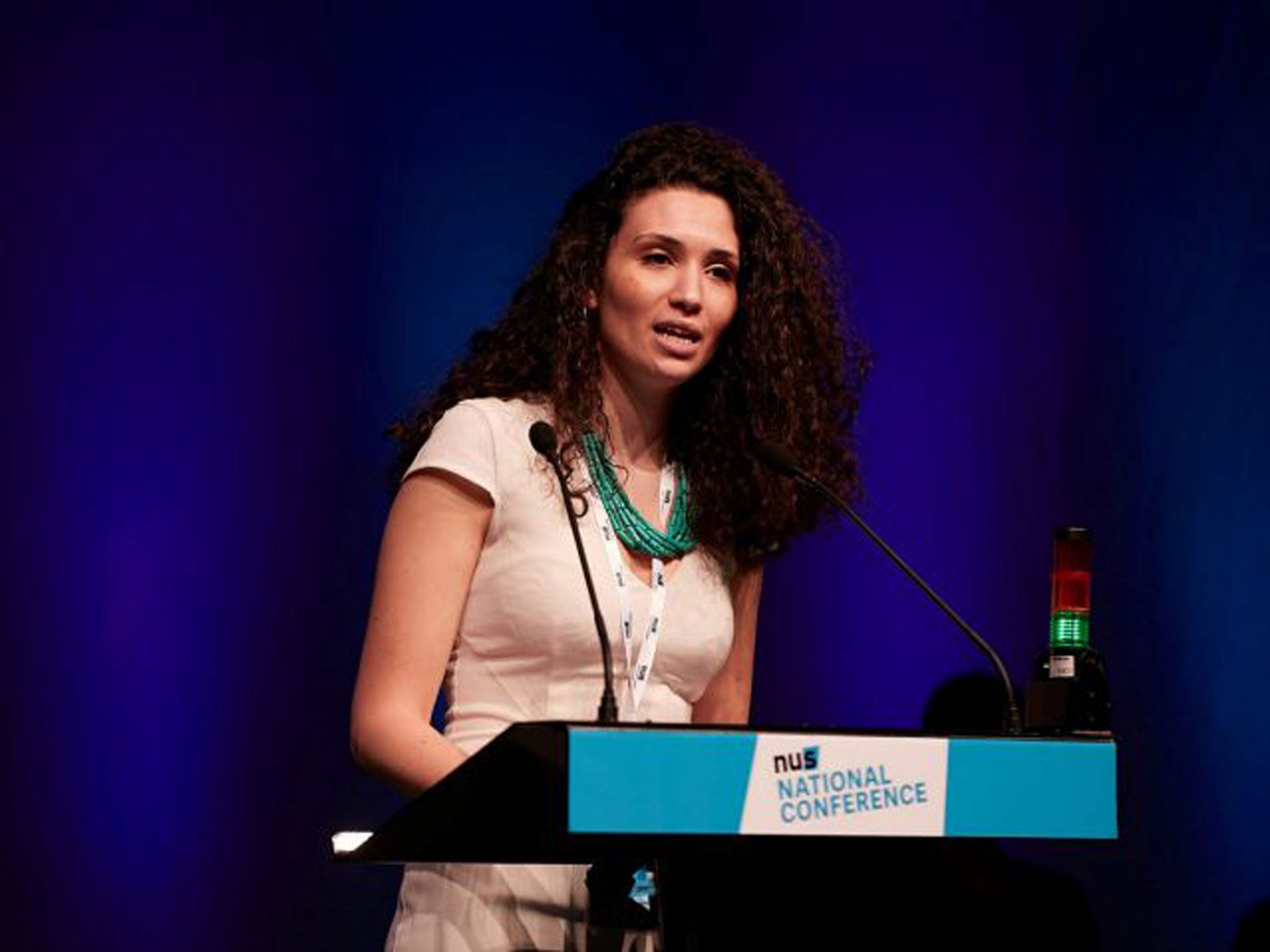NUS president Malia Bouattia defends safe spaces and no platforming at UK universities
Ms Bouattia denies banning speakers with 'problematic' viewpoints from institutuions prevents them from being challenged

Your support helps us to tell the story
From reproductive rights to climate change to Big Tech, The Independent is on the ground when the story is developing. Whether it's investigating the financials of Elon Musk's pro-Trump PAC or producing our latest documentary, 'The A Word', which shines a light on the American women fighting for reproductive rights, we know how important it is to parse out the facts from the messaging.
At such a critical moment in US history, we need reporters on the ground. Your donation allows us to keep sending journalists to speak to both sides of the story.
The Independent is trusted by Americans across the entire political spectrum. And unlike many other quality news outlets, we choose not to lock Americans out of our reporting and analysis with paywalls. We believe quality journalism should be available to everyone, paid for by those who can afford it.
Your support makes all the difference.The President of the National Union for Students (NUS) has defended the the union's No Platform policy, claiming places of education should be "safe spaces in which to debate and discuss ideas".
Malia Bouattia, who was elected NUS President in April, said 'no platforming' - a policy that asserts no proscribed person or organisation should be given a platform to speak - helped ensure "engagement, inclusion and accessibility for all", and denied that it prevented problematic viewpoints from being challenged.
Speaking in an interview aired on the BBC's Today programme, Ms Bouattia said: "Safe spaces are an application of democratic processes and we want to ensure that spaces of education - student unions and so on - are safe spaces in which to debate and in which to discuss ideas.
"We're not stopping the tearing apart of problematic views and ideas. It's incredibly naive to believe that unless we provide spaces where racist, xenophobic, homophobic views are aired, that they're not otherwise known about.
“What I support are people's democratic rights to apply what they need to facilitate engagement, inclusion and accessibility for all,” she added.
At the start of this year, new data revealed students’ unions were four times more likely to put bans in place on campus than the universities themselves, prompting claims that free speech at UK universities was “an epidemic”.
The issue has resurfaced in recent weeks, with Prime Minister Theresa May arguing that 'safe spaces' at universities stifle freedom of speech and could damage economic development, describing the policy as “quite extraordinary”.
During the same interview, Ms Bouattia said the comments she made prior to her appointment as NUS president that were attacked as anti-Semitic had been misinterpreted.
When questioned about it she said: “I would certainly review my language and would definitely want to explain the political context which I was discussing. I absolutely was not saying the things that it has been interpreted as."
In April it was revealed nearly two-thirds of university students believe their unions were right to have 'no platforming' policies.
The NUS's list of proscribed organisations that are banned under the No Platform policy, as of April 2015, includes the British National Party and the Muslim Public Affairs Committee.
Join our commenting forum
Join thought-provoking conversations, follow other Independent readers and see their replies
Comments